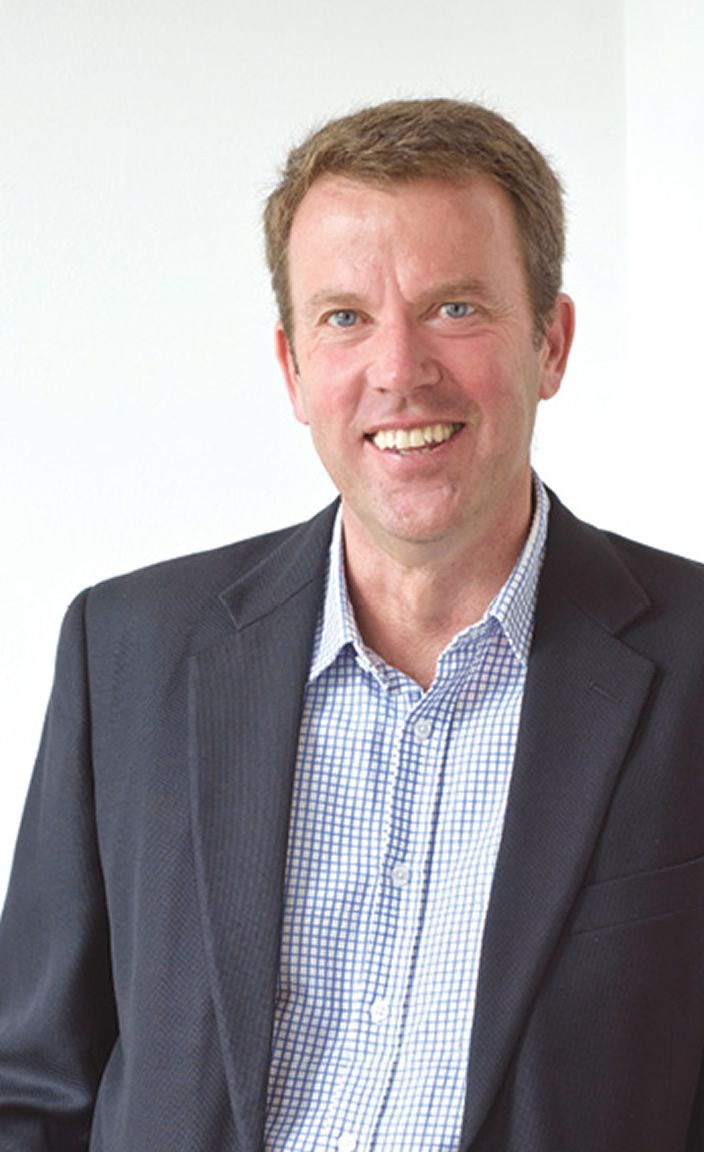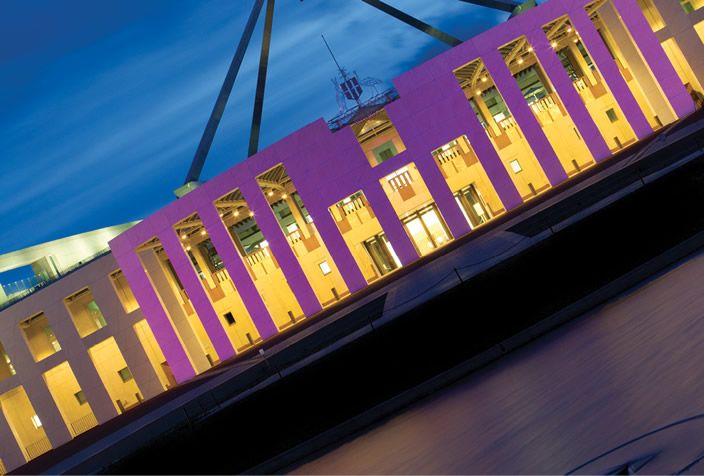In light of the forthcoming federal election, Bedrock asked Labor and the Liberal/National Party to answer a number of questions about early childhood education.
Federal election
analysis
Questions from IEUA to the Federal Government

Your government has only committed to fund ACEQA until 30 June 2020? Why? What do you envisage happening after this date? Will the states then revert to individual ‘state quality authorities’? How will we ensure consistency in the National Quality Authority? What will be in place to prevent individual states from seeking to undermine the current National Standards?
Your government has indicated you will not renew the National Partnership Agreement, which provides access to 600 hours of preschool education led by a qualified teacher. This was due to expire on 30 June 2019. Are you aware of the benefits of early childhood education and care (ECEC) and that it has been shown to be an investment that returns significantly more than is invested? How are you going to guarantee access to early childhood education and care to all children (particularly those from disadvantaged backgrounds) from 2019 onwards?
What guarantee do you have that the states and territories can and will continue to provide funding to ensure children have access to ECEC in the year before school? Given that research shows lifelong benefits of ECEC and that 90% of the brain develops before age 5, if the number of children accessing ECEC decreases as a result of the loss ofthis funding, what does this say about your commitment to giving children a positive start to learning?
Response from Education Minister Dan Tehan’s office:

States and territories have always been responsible for regulating the operation of child care services. The Australian Government has provided$141.5 million since 2010 to state and territory governments to support the transition of the previously fragmented regulatory systems into a single nationally consistent National Quality Framework (NQF). The NQF has been in place since 2012 and has done a good job in driving continuous improvement in service delivery quality.
The Australian Government is providing around $870 million to support states and territories in delivering universal access to preschool throughout 2018 and 2019. Universal access aims to ensure that every child participates in a quality preschool program for 15 hours a week, or 600 hours a year, in the year before they start school. The Government understands preschool helps prepare children for school and is particularly beneficial for disadvantaged children. This funding will benefit around 340,000 children each year.
The Morrison Government’s priority is working with the states and territories on lifting preschool participation rates, especially for disadvantaged and Indigenous children. The most current national data shows 30 per cent of children are not attending for the 15 hours on offer. This increases to 35 per cent for vulnerable and disadvantaged children, and up to 41 per cent for Indigenous children. We want to ensure that our children enrolled in preschool actually attend preschool.
The Federal Government does not own or run child care centres and does not set minimum wage rates in the industry, just as it doesn’t set minimum wage rates for any industry in the private sector. The Fair Work Commission is the authority created by the Labor Party when last in Government to deal with these issues. This matter is currently before the Commission for consideration.
IEUA questions to Labor and responses from Shadow Minister for Early Childhood Education and Development Amanda Rishworth’s office.

Will Labor commit to ongoing funding for ACEQA to ensure the National Quality Standards are not undermined in any way?
Labor was appalled that the Government’s 2018-19 Budget has abolished the National Partnership Agreement on the National Quality Agenda for Early Childhood Education.
The quality agenda established by Labor in 2009 is a success story. Through it, 57% of services have improved their quality rating when reassessed – and 75% of services are now meeting or exceeding the National Quality Standard.
The Liberal Government has now decided to shift the cost of implementing and regulating the quality framework wholly onto the states and territories. Jobs and access to quality early learning services are now at risk, as the funding for inspections and audits of services is now gone.
In October, Labor announced it will restore this funding if it wins government at the next election.
Why has Labor committed to $1.75 billion to give three and four year old children access to preschool or kindergarten programs? Attendance by Australian three year olds at early childhood education is low compared to the OECD average. How will Labor’s policy ensure increased attendance of three year old children? What will Labor do to ensure that children from disadvantaged and vulnerable families are able to access early childhood education? Will Labor ensure that some of this is targeted funding for vulnerable three and four year old children? Does Labor have any priorities in regard to which type of services are allocated Universal Access funding?
Labor believes investment in early education is one of the smartest investments we can make. It’s good for kids – it sets them up for a better start at school and has been proven to translate to better results in the classroom. We’ve made good progress with four year old preschool, but when the benefits of early education are so clear, we need to look to the future.
Current enrolment for four year old children is sitting at around 93%. Only 57% of three year old children are currently in the early education and care system, which is well below the OECD average of almost 80% – we need to get this number up to 90%.
Labor will invest $1.75 billion in the new National Preschools and Kindy program. Labor will work in partnership with the states and territories to deliver preschool and kindergarten to three year old children. It won’t be a blank cheque. We will expect the states and territories to match our commitment and will expect them to meet enrolment and attendance targets, particularly for Indigenous and vulnerable children. If they don’t, they will be penalised funding. In particular, we know the children who will benefit the most from early education are the children who won’t be accessing it – this is about changing that trend.
Labor will demand that Commonwealth funding directly supports the delivery of this program or is used to ensure fees are kept as low as possible. We will not accept cost being a barrier to participation in the program.

Will Labor commit to ensuring Universal Access funding is ongoing, rather than the current short term arrangements to give certainty to ECEC services?
In government, Labor will look at providing more certainty to Australia’s preschools and kindies. Our $1.75 billion National Preschools and Kindy Program includes a commitment to ongoing funding for the existing four year olds program. Under the Liberals, preschools and kindies don’t have any funding commitment from the federal government after the 2019 school year.
The constant uncertainty over preschool funding under the current government is jeopardising the gains made in the last decade since Labor introduced Universal Access to preschools:
- the increase in enrolment of four year old children to 93%, and the increase in attendance for 600 hours up from 12% to 91%
- the implementation of the National Quality Standard, including the Quality Framework and minimum educator qualifications and staff ratios, and
- the Early Years Learning Framework, which staff and providers all value.
It has been almost a decade since the first National Partnership Agreement was signed, and the first National Early Childhood Development Strategy was endorsed. It is well and truly time to have these conversations again.
Given the difficulties of bargaining in the sector due to the large number of small employers, what will your government do to ensure that teachers and other staff receive fair and reasonable wages and conditions in recognition of the importance of the work that they perform – not only for children and parents but in preparing children for entering the school sector?
Labor recognises that quality early education and care can only be provided by a skilled, professional and well paid workforce.
Labor has supported the industrial action taken by early educators this year and I have twice met with a delegation of early educators in Parliament to discuss the strike and the need for fair pay.
Labor does not think it is right that those who educate our youngest minds earn less than half the average national wage.
As skilled professionals, it is right that those educators who we trust to shape our youngest citizens are paid a wage which is in line with the quality we expect from them.
That’s why Labor will, if elected, strengthen the ability of the Fair Work Commission to order pay increases for workers in female dominated industries, including early childhood. Labor will give the Commission greater capacity and funding to conduct Pay Equity Reviews and order pay increases in undervalued feminised industries. Low paid workers should not have to rely on fighting complex, expensive legal cases to secure a decent wage rise.
If the Morrison Government was serious about a fair wage for our early childhood educators they would be sitting down and talking with them about a pathway forward. Instead the government are not giving our early childhood educators and their representatives the respect they deserve.
This government has form when it comes to neglecting issues facing our early education workforce. Their hit list includes:
- allowing the Early Years Workforce Strategy introduced by Labor in 2012 to expire in 2016,
- abolishing the Long Day Care Professional Development Program, and
- ending funding for the Professional Support Coordinators.
Our early educators and the important work they do deserve to be properly valued.







































































































































